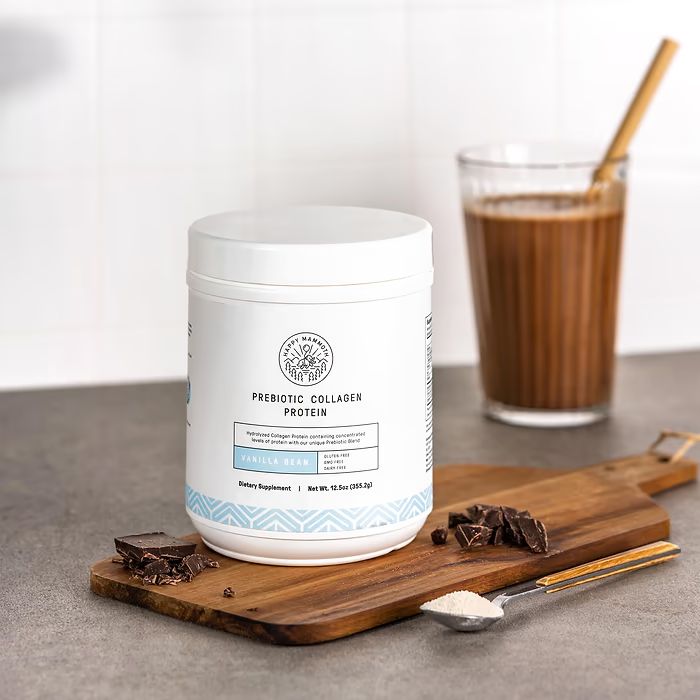In a world where plant-based diets are gaining momentum, the quest for optimal health leads many to explore the vital role of nutrition in maintaining strong bones. For those adopting vegan lifestyles, ensuring adequate intake of calcium and vitamin D—essential nutrients for bone density—presents a unique challenge. However, the realm of vegan supplements offers a treasure trove of alternatives that not only support skeletal integrity but also align with ethical dietary choices. In this article, we will delve into the moast effective vegan supplements available, exploring innovative sources of calcium and vitamin D that nourish the bones while celebrating the richness of plant-based living. Join us as we uncover the paths to fortified bone health, equipping you with the knowledge needed to thrive on a vegan diet without compromising yoru skeletal wellness.
Exploring Plant-Based Calcium Sources for Stronger Bones
While dairy products are often touted as the primary source of calcium, there is a wealth of tasty and nutritious plant-based alternatives that can help maintain and strengthen bone health. Incorporating a variety of these foods into your diet can ensure you receive adequate calcium without compromising your vegan principles. Some excellent sources of plant-based calcium include:
- Leafy Greens: Kale, bok choy, and collard greens are not only rich in calcium but also packed with vitamins and fiber.
- Fortified Plant Milks: Almond, soy, and oat milks are often fortified with calcium, mirroring the levels found in cow’s milk.
- Tofu: Made from soybeans, tofu can provide a significant calcium boost, especially when set with calcium sulfate.
- Nuts and Seeds: Almonds and chia seeds are great snacks that also contribute to your daily calcium intake.
Moreover, it’s essential to pair these calcium-rich foods with other nutrients that help enhance bone absorption and health. Vitamin D, for example, plays a vital role in calcium metabolism. Sence vegan sources of vitamin D are limited,consider options like mushrooms exposed to sunlight or fortified foods,along with supplements if necesary. For a clearer understanding of how different plant-based options stack up in calcium content, refer to the table below:
| Food source | Calcium Content (mg per serving) |
|---|---|
| Kale (cooked, 1 cup) | 94 |
| Fortified almond Milk (1 cup) | 450 |
| Firm Tofu (½ cup) | 253 |
| Chia Seeds (2 tbsp) | 179 |

The Role of Vitamin D in Bone Health and Vegan-Friendly Options
Vitamin D is essential for optimal bone health, as it aids in the absorption of calcium, helping to maintain a strong skeletal system. A deficiency in this vitamin can lead to weakened bones and increased risks of fractures. For those following a vegan lifestyle, obtaining sufficient vitamin D can be somewhat challenging, as many traditional sources, like fatty fish or egg yolks, are not plant-based. Though, there are several vegan-friendly options available to support bone health effectively. Consider these sources:
- Sunlight exposure: The body naturally synthesizes vitamin D when the skin is exposed to sunlight, making regular, safe sun exposure one of the best ways to boost levels.
- Fortified foods: Many plant-based milks, cereals, and juices are fortified with vitamin D, providing a convenient way to achieve the recommended intake.
- mushrooms: Certain varieties, especially those exposed to UV light, can be good sources of vitamin D2.
- Supplements: Vitamin D3 sourced from lichen is a vegan-friendly option that can effectively support bone health.
Incorporating these sources can help maintain adequate vitamin D levels and, in turn, promote stronger bones.Complementing a vitamin D-rich diet with foods high in calcium, such as leafy greens, nuts, and fortified products, forms a holistic approach to bone health. To better illustrate the connection between these vitamins and dietary sources, refer to the following table:
| Source | Type | Vitamin D Content |
|---|---|---|
| Fortified Almond Milk | Drink | 100 IU per cup |
| Chanterelle Mushrooms | Vegetable | 200 IU per 100g |
| Fortified Orange Juice | Drink | 137 IU per cup |
| Vitamin D3 Supplement (Lichen) | Supplement | 1000 IU per serving |

Enhancing Absorption: Combining Nutrients for Optimal Benefits
To maximize the benefits of calcium and vitamin D alternatives, it is indeed essential to combine these nutrients with others that enhance their absorption. As a notable example, integrating magnesium-rich foods, such as leafy greens and nuts, can greatly improve how effectively calcium is absorbed in the body. This synergy not only strengthens bones but also promotes overall health.Additionally, incorporating vitamin K2 found in fermented foods can further support calcium metabolism, ensuring that essential minerals stay out of the arteries and towards where they are needed most—your bones.
Moreover, it’s crucial to consider the timing and types of meals to optimize nutrient uptake. Consuming calcium-rich foods alongside sources of vitamin C,such as citrus fruits or bell peppers,can enhance bioavailability. explore options like:
- Fortified plant-based milks: Frequently enough enriched with calcium and vitamin D, these are perfect for smoothies.
- Chia seeds: They combine well with fruit, providing omega-3 fatty acids that support bone health.
- Leafy greens: Pair them with a source of fat for better absorption of fat-soluble vitamins.
Experimenting with diverse combinations can create not just healthier meals, but also ensure that your body reaps the full array of nutrients it needs for robust bone health.

Practical Tips for Incorporating Vegan Supplements into Your Diet
Incorporating vegan supplements into your diet can be seamless with a few practical strategies. Start by integrating calcium-rich foods, such as leafy greens, tofu, and fortified plant-based milks, into your meals. Complement these with vitamin D sources like mushrooms exposed to sunlight or fortified alternatives.Keeping a stock of these items will ensure you have readily available options to meet your nutritional needs. Consider incorporating them in various forms, such as smoothies, salads, or snacks, to make your meals both satisfying and health-focused.
Additionally, scheduling regular reminders for taking your supplements can help establish a consistent routine. you might find it beneficial to keep a supplement journal to track your intake and any changes in how you feel over time. Here are a few tips for optimizing your supplement consumption:
- Pair supplements with meals: This can enhance absorption.
- Choose high-quality brands: Research and select reputable suppliers for supplements.
- Stay informed: regularly read up on vegan nutrition to adapt your intake based on evolving dietary research.
Insights and conclusions
prioritizing bone health is essential for everyone,regardless of dietary preferences.As we journey through the world of veganism, the importance of calcium and vitamin D cannot be overstated. Fortunately, there is a wealth of plant-based alternatives that can empower us to meet our nutritional needs without compromising our values. From fortified plant milks to leafy greens and clever supplementation, the options are abundant and accessible. By understanding and embracing these alternatives, we can build a strong foundation for our bones while aligning our diets with a compassionate lifestyle. As always, it’s wise to consult with a healthcare professional to tailor a plan that best suits your individual needs. With a little creativity and intentionality,nourishing our bones on a vegan diet is not just possible—it’s a pathway to a vibrant and healthy life.Here’s to thriving on our journeys, one informed choice at a time!



